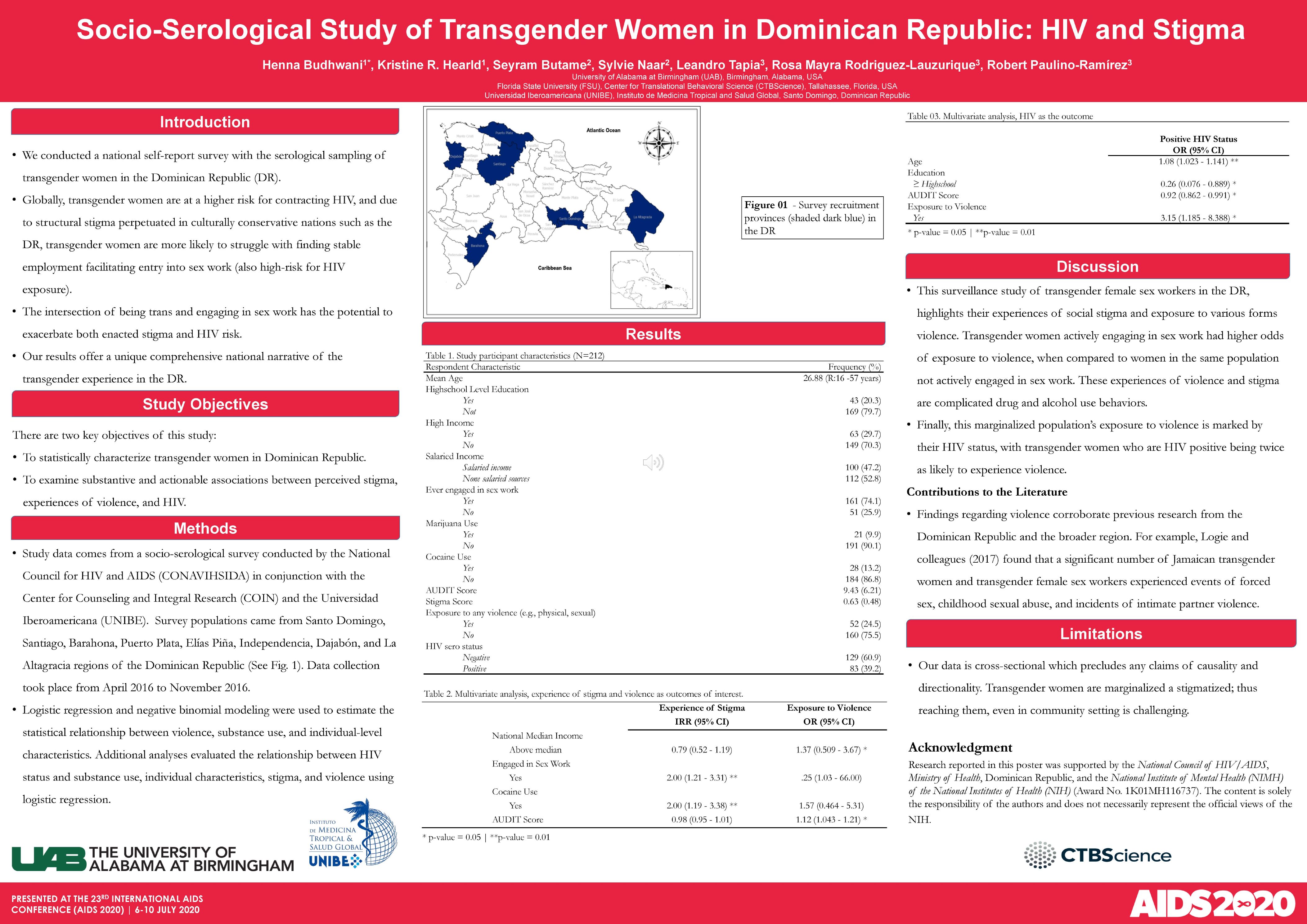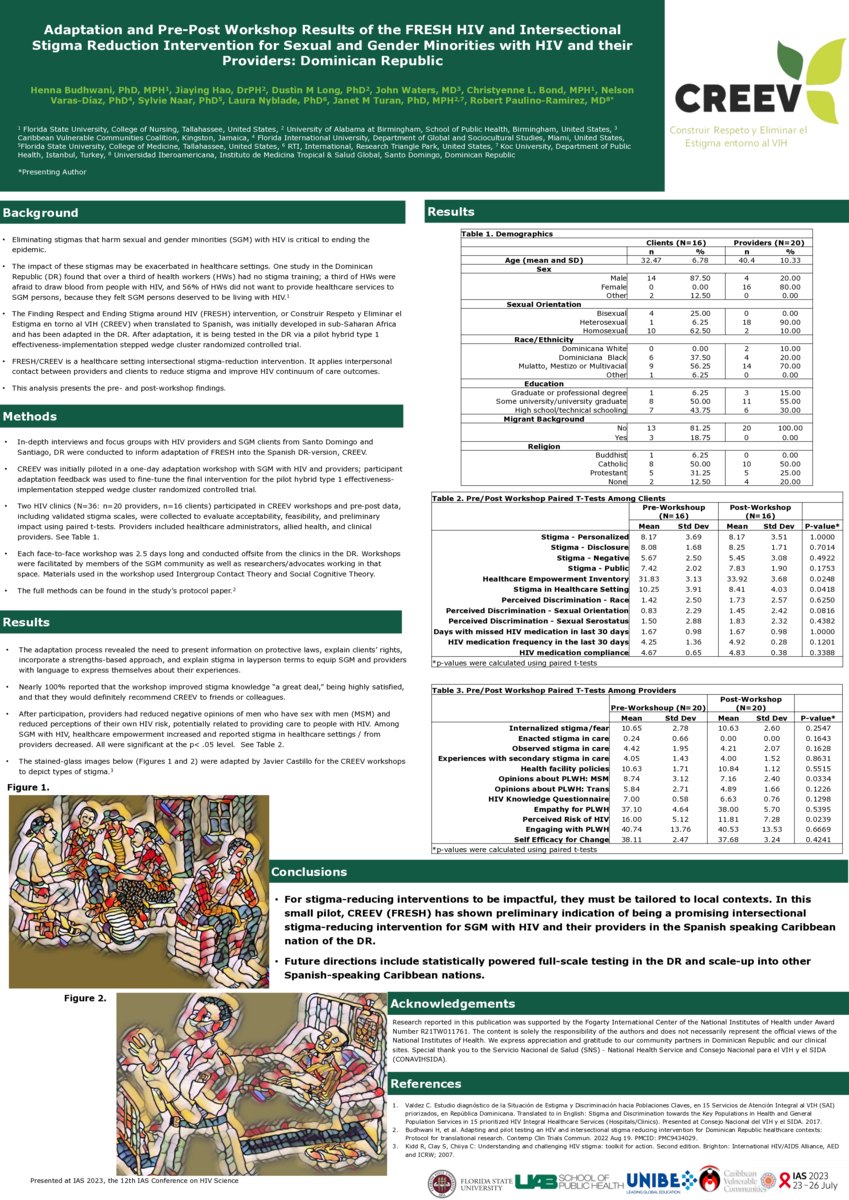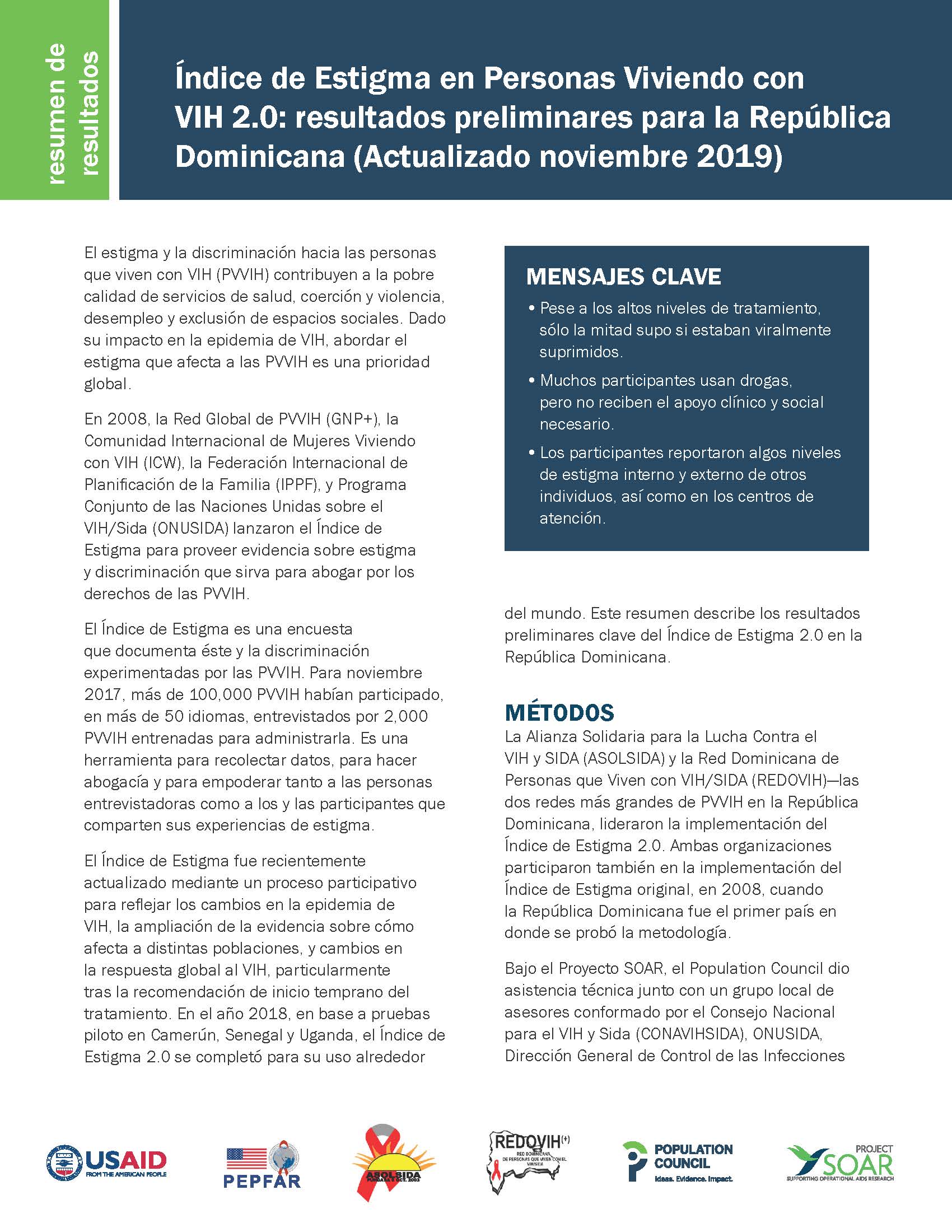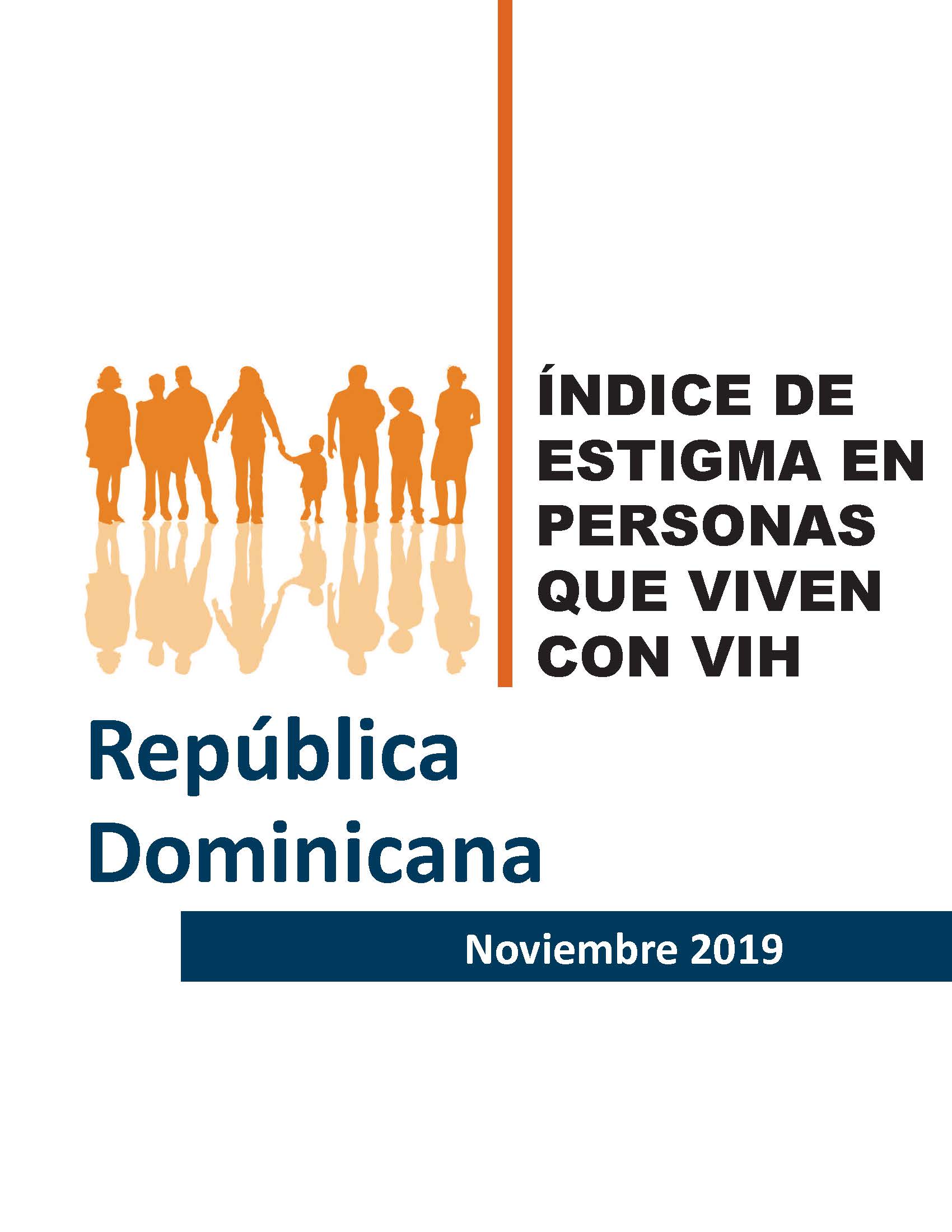Resumen
BACKGROUND: In 2016, our study team conducted the first and only national self-report survey with serological sampling of transgender women in Dominican Republic and across the Caribbean. To our knowledge, our results offer the only comprehensive national narrative of the transgender experience in the region. Thus, there are two key purposes of this abstract. This first is to characterize transgender women and their experiences in Dominican Republic. The second is to examine associations between stigma, violence, and HIV to identify areas of intervention.
METHODS: Data for this study (both self-reported and serological) were collected in 2016 from rural and urban communities across Dominican Republic (N=212). We conduct logistic and negative binomial fixed-effects regression modeling to estimate relationship between violence, stigma, substance use, and HIV/STI serostatus.
RESULTS: Participant average age was 27 years; only 30% were near or above the local federal poverty line. About 75% participated in sex work; 13% reported cocaine use and 42% abused alcohol. Nearly 40% were living with HIV and almost half were serologically reactive for syphilis. A quarter reported experiencing violence; 63% reported experiencing at least one stigma event. Using logistic regression we estimated that respondents who have ever had participated in sex work were associated with 4.7 times higher odds of experiencing violence (OR:4.71, p<0.05). Likewise, respondents who abused alcohol were associated with 2.9 times higher odds of experiencing violence compared to respondents with lower risk (OR:2.92, p<0.01). Through our negative binomial regression model we found that respondents near or above the poverty line reported experiencing less stigma (IRR:0.66, p<0.05). Respondents who have ever had participated in sex work were more likely to have report stigma (IRR:1.60, p<0.05). Respondents living with HIV were more likely to have reporting perceiving and experiencing stigma compared to their uninfected peers (IRR:1.41, p<0.05).
CONCLUSIONS: Findings can inform health policy to benefit sexual and gender minorities, specifically transgender women, and to inform structural and behavior public health interventions designed to reduce HIV risk, fortify the individual against the deleterious effects of stigma, and improve health outcomes of transgender women in Dominican Republic and across the Spanish-speaking Caribbean.






